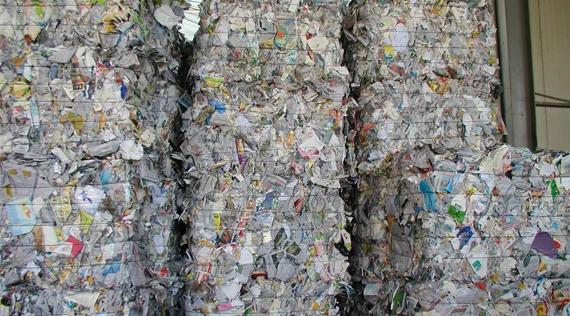
SEATTLE (Waste Advantage): An estimated $80 billion-$120 billion of value is lost because of packaging that goes into the environment, said Navneet Chadha, principal operations officer at the World Bank’s International Finance Corp., which helps fund private sector investment in developing countries. “We have to think of used plastic as a resource, not as a waste.”
Chadha cautioned that standards for recycled products need to be developed to avoid “unintended consequences”. Using plastic in road construction, for example, needs to be evaluated further as microplastics may be generated as the road decays, he said. Plastic waste is traditionally reused by collecting and sorting refuse and then melting it, a process known as mechanical recycling. Part of the problem is that a lot of garbage is tainted with food or chemicals and can’t cheaply be turned into high quality raw materials.
“The biggest challenge is quality of recycled plastic,” said Jean-Marc Boursier, chief operating officer of SUEZ Group, one of the world’s largest recycling companies. “Major consumer goods companies like Danone, Pepsi or Coca Cola will not buy recycled plastic unless they are convinced that the quality is as good as virgin plastic.”
SUEZ has nine plants globally that can turn a combined 500,000 tons of waste plastic into 150,000 tons of polymers, used to make shampoo bottles, car interiors and other products. The company is opening its first Asian plastic recycling plant this year in Thailand. Boursier suggests pricing the carbon savings into the recycled plastic price to take into account the environmental benefit.
A team of researchers at the National University of Singapore has developed a way to convert low-value plastic waste into aerogels — ultra-light materials used in everything from diaper fillings to cleaning up oil spills. Around eight average plastic water bottles produce a square meter sheet of aerogel using the method, said Duong Hai Minh, an associate professor at the university who worked on the project. The researchers have sold commercial production rights to firms including Bronxculture in Singapore and DPN Aerogel JSC in Vietnam, he said. “People throw away plastic because there they don’t see any value,” Minh said. “As long as we can make it valuable, everyone will keep it and sell it.”
Courtesy: www.wasteadvantage.com
| Copper Scrap View All | |
| Alternator | 0.32 (0) |
| #1 Copper Bare Bright | 3.76 (-0.01) |
| Aluminum Scrap View All | |
| 356 Aluminum Wheels (Clean) | 0.73 (0) |
| 6061 Extrusions | 0.64 (0) |
| Steel Scrap View All | |
| #1 Bundle | 460.00 (-15) |
| #1 Busheling | 480.00 (-15) |
| Electronics Scrap View All | |